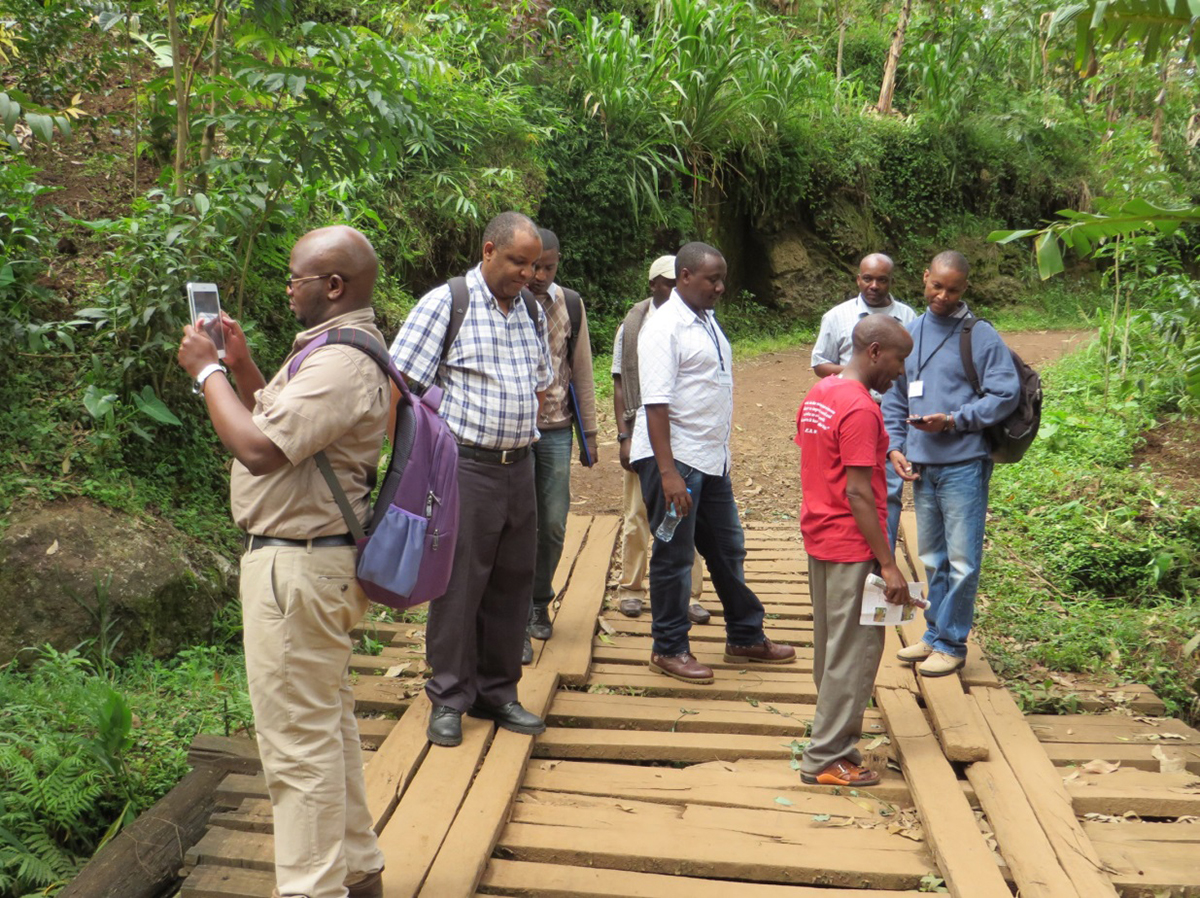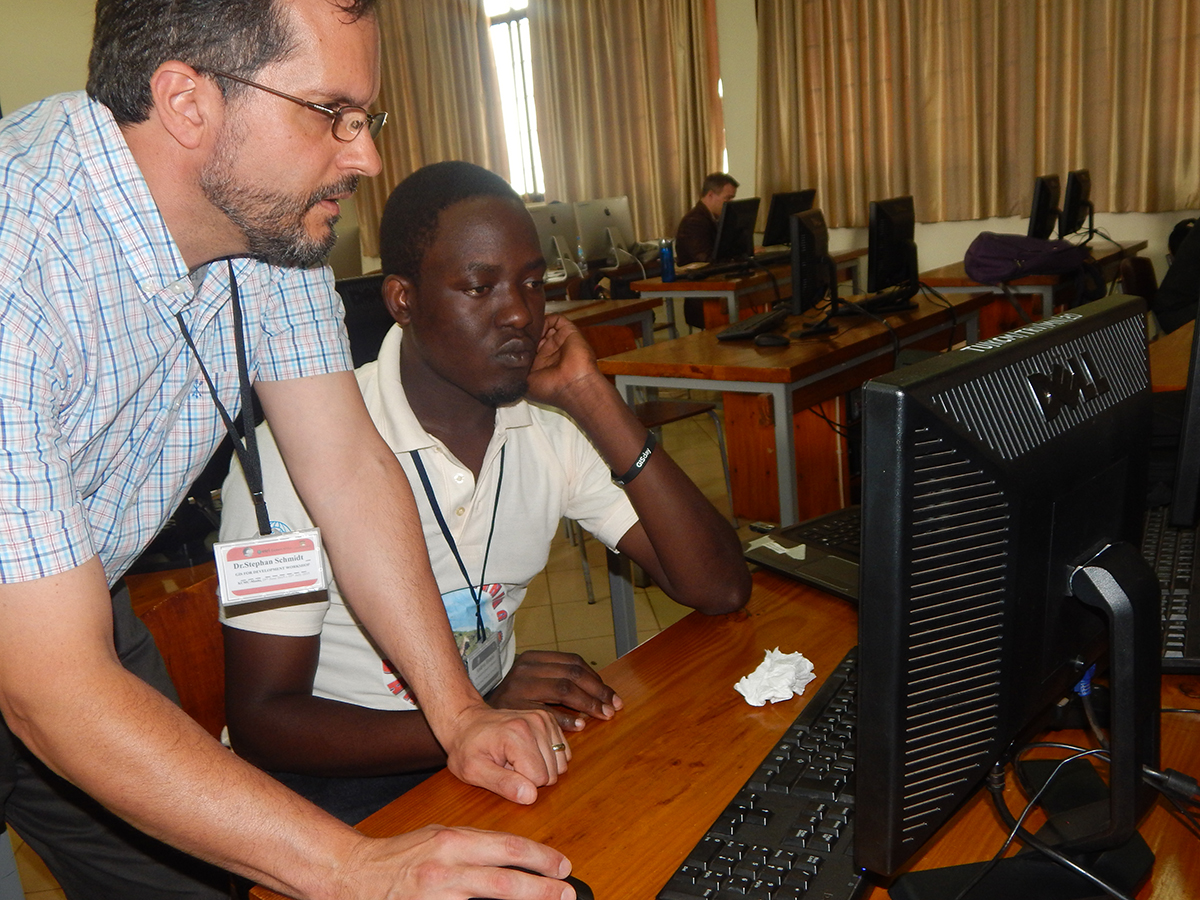Students train to collect, evaluate data in Tanzania
By Becca Bowes


Students from Cornell’s Global Health Program and the Cornell Institute for Public Affairs joined Tanzanian students and professionals in July for a two-week workshop in data collection at Kilimanjaro Medical Christian College in Moshi, Tanzania, organized by associate professor of city and regional planning Stephan Schmidt.
The workshop was aimed to improve decision-making in public health, wildlife conservation and land tenure, and focused on improving the capability of partner institutions to gather data, conduct spatial analysis, and monitor and evaluate programs and projects.
Mweka, a village located on the slopes of Mount Kilimanjaro, was selected for the field training exercise for students from Cornell and from Mweka College of African Wildlife Management, Kilimanjaro Medical Christian College and the Nelson Mandela Institute, and professionals from Enduimet Wildlife Management Area and Tanzania People and Wildlife, a nongovernmental organization focusing on human-wildlife conflict.
Students met with Mweka community leaders at an information gathering session, then divided into four teams. The teams used mobile data collection tools, such as Open Data Kit, on their smartphones to gather and aggregate geo-referenced information. One team collected information on biodiversity by mapping the occurrence of native and exotic tree species. A second group collected spatial data on agricultural practices and the occurrence of breeding sites for cavity-nesting birds.
Another group gathered household demographic information and health practices for the village of Mweka. The fourth team worked with community leaders and village elders in Mweka to map the boundaries between subvillages. This data was analyzed and interpreted by the students, and each group presented its findings at the end of the workshop.
“We were very pleased with the outcome of the workshop,” Schmidt said. “We were able to develop new partnerships, strengthen existing ones and meet a growing demand for quality data collection training.”
Schmidt received a grant from Cornell’s Institute for African Development to sponsor the workshop. ESRI Eastern Africa supplied technical assistance and a trainer, and Mweka College and the Honeyguide Foundation helped organize the field excursions and provided expert assistance.
For the next phase of the project, Schmidt plans to organize a “training of trainers” workshop and develop curriculum for participating universities and organizations.
Schmidt teaches courses in environmental planning and Geographic Information Systems (GIS) and is the director of graduate studies in the Department of City and Regional Planning. He also is director of the Clarence S. Stein Institute for Urban and Landscape Studies.
Rebecca Bowes is a writer/editor at the College of Architecture, Art and Planning.
Media Contact
Get Cornell news delivered right to your inbox.
Subscribe